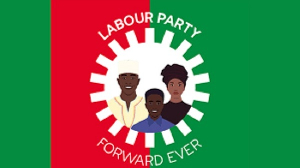- Date of Birth:
- 2002-00-00
- Place of Birth:
- Nigeria
The Labour Party (LP) in Nigeria traces its roots back to its formation in 2002, initially known as the Party for Social Democracy (PSD). Founded on the principles of social democracy, the party aimed to champion social justice, progress, and unity within the Nigerian political landscape. In 2003, it officially adopted the name Labour Party, reflecting its commitment to advocating for the rights and welfare of Nigerian workers and promoting equitable socio-economic policies.
Over the years, the Labour Party has positioned itself as a viable alternative to the dominant political forces in Nigeria, particularly the People's Democratic Party (PDP) and the All Progressives Congress (APC). It has consistently advocated for policies that prioritize the interests of the working class, promote economic justice, and foster inclusive development across the country.
A significant moment in the party's recent history occurred on 27 May 2022, when the former governor of Anambra State, Peter Obi, joined the Labour Party. Obi's decision to switch allegiance from the PDP to the LP was motivated by his aspirations to contest in the 2023 Nigerian presidential election under a platform that aligns more closely with his social democratic ideals and governance principles. His defection bolstered the party's visibility and support base, marking a notable increase in membership and generating considerable momentum heading into the electoral cycle.
As the Labour Party continues to evolve, it remains committed to advancing its core values of social justice, progress, and unity through democratic governance and policy advocacy. With Peter Obi's leadership and the party's renewed focus on addressing socio-economic inequalities and promoting inclusive growth, the LP aims to play a pivotal role in shaping Nigeria's political landscape and advancing the welfare of its citizens.
www.mynigeria.com



